Photo: Alexander Tamargo/Getty Images

Alejandro Sanz
news
Alejandro Sanz Reveals New Album Is "Coming Soon"
The Spanish singer's last studio album was 2015's Sirope, which earned him a Latin GRAMMY and a GRAMMY nod that year
GRAMMY- and Latin GRAMMY-winning Spanish ballad singer Alejandro Sanz has revealed more details about his upcoming 12 studio album, titled #ElDisco, set to be released this year.
<iframe width="620" height="349" src="https://www.youtube.com/embed/PnR2f-G7IaE" frameborder="0" allow="accelerometer; autoplay; encrypted-media; gyroscope; picture-in-picture" allowfullscreen></iframe>
On the red carpet at the Premio Lo Nuestro Latin music awards last night, Sanz told Billboard that his highly anticipated follow-up to 2015's Sirope, which earned Best Contemporary Pop Vocal Album at the 16th Latin GRAMMY Awards, is "coming soon." He also confirmed that a U.S. tour in its support is in the works.
He teased details about an upcoming single from the album, which samples late GRAMMY- and Latin GRAMMY-winning icon Celia Cruz's "Por Si Acaso No Regreso."
"The result has been very beautiful. People have received it very well and they understand the meaning behind the song and what the lyrics are about," Sanz said of his song, which is about those who have to leave their country of origin and eventually feel homesick.
The singer's latest release is "Back In The City," featuring Latin GRAMMY-winning reggaetonero Nicky Jam, and will be featured on Sanz upcoming album. The pair performed the song last night onstage at Premio Lo Nuestro.
Ozuna, J Balvin & More Pay Tribute To Daddy Yankee At Premio Lo Nuestro
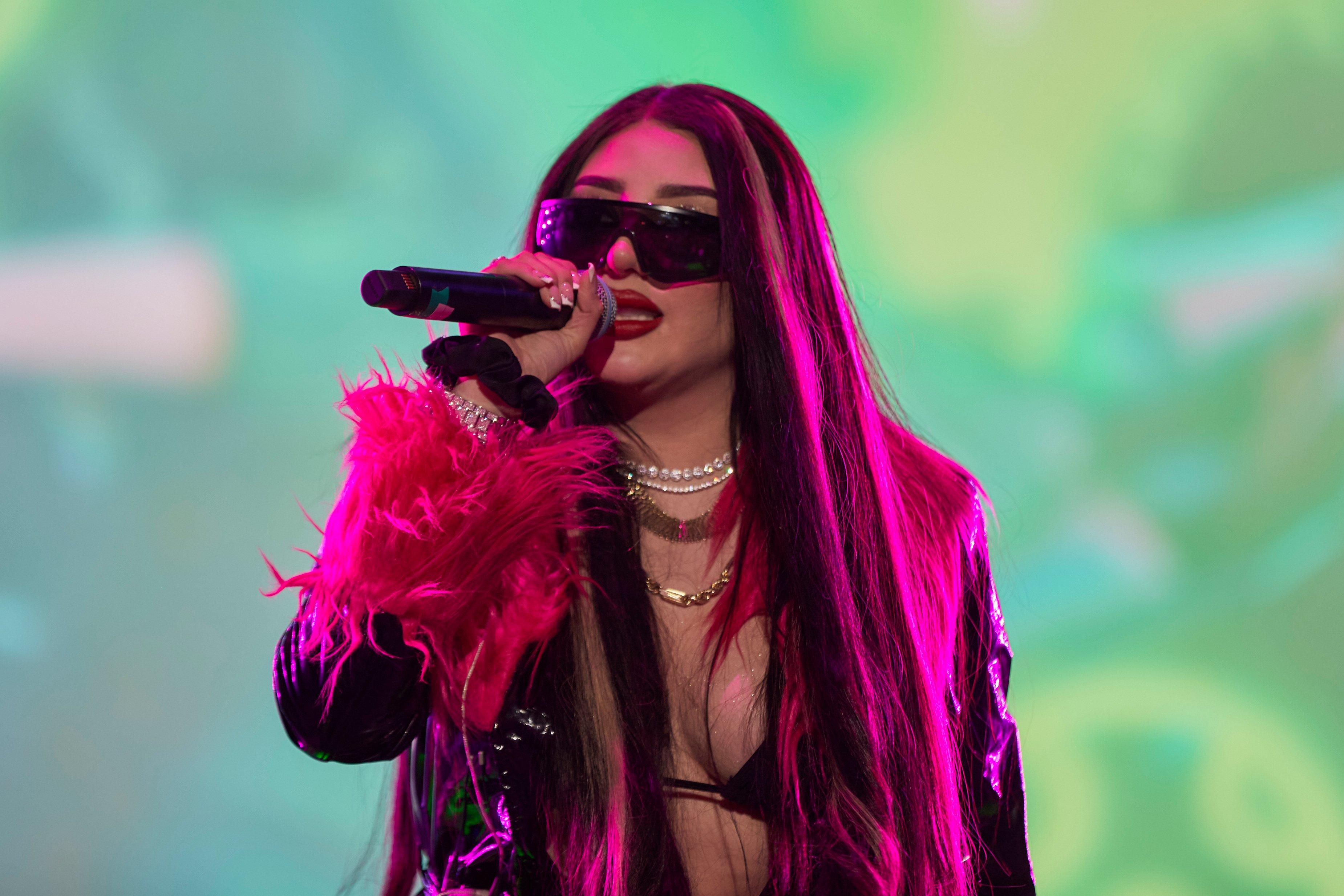
Photo: Jaime Nogales
list
7 Artists Bringing Reggaeton Mexa To The World: El Malilla, Bellakath & More
Pulling from the genre's underground roots in Puerto Rico, these fast-rising reggaeton Mexa artists infuse their own culture and grit into a globally-appealing sound.
Música Mexicana isn't the only sound of Mexico that's blowing up; the country's artists are now starting to make their mark in reggaeton. Imbued with the essence, swagger, and lingo of Mexico, reggaeton Mexa is the next big Latin sound that's going global.
Originating in the Caribbean, reggaeton evolved from Panama’s reggae en español and Jamaican dancehall of the 1980s. Puerto Rican acts like DJ Playero and DJ Nelson shaped the sound of reggaeton in the island's underground scene during the '90s, while Daddy Yankee, Tego Calderón, Don Omar, and Ivy Queen pushed the genre into the mainstream at the dawn of the new millennium.
Boricua acts Tainy, Bad Bunny, and Ozuna pushed reggaeton into the next decade, though Colombia also brought about the genre's second wind. J Balvin's success solidified Medellín as a reggaeton hotbed, spawning Maluma, Karol G, and Feid as global stars.
Learn more: The Sonic And Cultural Evolution Of Reggaeton In 10 Songs
In the 2020s, Mexico is becoming the next hub for reggaeton as artists who grew up listening to the Puerto Rican OGs — as well as Mexican acts Ghetto Kids and Pablito Mix — are now putting their own stamp on the genre. In late 2022, Bellakath put a spotlight on reggaeton Mexa with her viral hit "Gatita"; the following year, Yng Lvcas took the sound to new heights with his "La Bebé" remix featuring Peso Pluma, which reached No. 11 on the Billboard Hot 100 chart.
Reggaeton Mexa pulls from the genre's underground roots in Puerto Rico, infusing its songs with Mexican culture and grit. Lyrics are full of Mexican slang that reflect life in the barrios.
"Reggaeton Mexa is reminiscent of the sounds of the '90s and 2000s from Puerto Rican DJs like Playero and Joe," El Mallila, one of the reggaeton Mexa leaders, tells GRAMMY.com. "The songs, the beats, and rhythms are more or less similar to that flow. The difference here is the Mexican jargon. Reggaeton Mexa is spicy. We play with Mexican profanities without being offensive."
The emerging genre has gained traction among the larger reggaeton community with Jowell y Randy, Maldy, and J Balvin recently featuring on their songs. Following the success of Yng Lvcas, Bellakath, and El Malilla, Mexican acts like Peso Pluma (who dedicated part of his Éxodo album to reggaeton) and pop star Kenia Os are embracing the wave. As the tide continues to rise for reggaeton Mexa, GRAMMY.com is highlighting seven of the sound's leading artists.
Yng Lvcas
Guadalajara, Jalisco native Yng Lvcas noted that no one around him could name a Mexican reggaeton artist, so he decided to fill that void.
An early encounter would make for auspicious beginnings. As he was signing a record contract with Warner early last year, Yng Lvcas crossed paths with Peso Pluma. The música Mexicana star's first foray in reggaeton was with Yng Lvcas and their global hit, a sensual remix of "La Bebé." Their collaboration became the first reggaeton song by Mexican artists to enter the Hot 100 chart.
Last October, Yng Lvcas released his album Super Estrellas to put a spotlight on more reggaeton Mexa acts. The LP included songs with El Malilla and El Bogueto. Puerto Rican OG Maldy later teamed up with Yng Lvcas for the hypnotic "Diviértete."
Bellakath
The first artist to get the global conversation started about reggaeton Mexa was Bellakath. After earning a law degree from the National Autonomous University of Mexico, the Mexico City native became a social media personality. Bellakath leveraged her following to start her music career, which exploded in late 2022 with the frisky "Gatita." The song went viral on TikTok and the music video has over 144 million views on YouTube.
In the male-dominated reggaeton Mexa scene, Bellakath is continuing to keep women on top. Last year, she released her debut album Kittyponeo with the hit "Reggaeton Champagne" featuring Dani Flow. After signing with Warner in May, Bellakath dropped "Sandunguea," which sampled the reggaeton classic "Mayor Que Yo" by Luny Tunes. On July 15, Bellakath released her second album, Sata 42, where she ventured into dembow music with artists from the Dominican Republic.
Learn more: 5 Women Essential To Reggaeton: Ivy Queen, Natti Natasha, Karol G, Ms Nina & Mariah Angeliq
El Malilla
El Malilla proudly represents the chakalones (Mexican slang for "bad boys") in reggaeton Mexa. Hailing from Valle de Chalco, El Malilla remembers his first encounter with reggaeton as a teen came from the pirated CDs that were sold at the tianguis, or open-air markets.
Now, El Malilla is bringing Mexico's version of reggaeton to the forefront. He recently released his debut album ÑEROSTARS, which includes his viral hit "B de Bellako" with Yeyo. Back in May, Puerto Rican OGs Jowell y Randy jumped on a remix of the quirky banger.
El Malilla also wants to make reggaeton Mexa more inclusive. Reggaeton has historically excluded LGBTQIA+ folks, though queer artists such as Young Miko, Villano Antillano, and La Cruz are changing that tune. On the Mexican front, El Malilla wanted to be an ally to his queer fans with the 2000-inspired "Rebote" music video, which was shot at the gay club Spartacus with Mexican drag queens.
Within his album, El Malilla is also stretching the bounds of his artistry by exploring merengue in "Coronada" and experimenting with house music in "Todo Tiene Su Final." "ÑEROSTARS is a call to all the reggaeton Mexa artists to dare themselves to make new music and try different sounds," he says. "Don’t stay in your comfort zone just making perreo."
Yeri Mua
Veracruz native Yeri Mua is keeping a high heel firmly planted on the neck of the genre, holding it down for the women in reggaeton Mexa.
Mua started out doing makeup tutorials on YouTube and later grew a massive social media following. Last year, she launched her music career on Uzielito Mix's reggaeton romp "Línea del Perreo," which has over 103 million streams on Spotify. In songs like "Chupon," Mua brings a fierce femininity to reggaeton Mexa while flipping the genre's explicit lyrics from a woman's perspective. In April, Kenia Os tapped Mua and Ghetto Kids for her reggaeton Mexa banger "Mamita Rica." With a laugh, Os told GRAMMY.com at the time, "[Mua] sounds very sexy and makes noises like meowing. It felt very great to work with her." Last month, Mua signed a record contract with Sony Music México.
El Bogueto
Alongside El Malilla, El Bogueto is one of the OGs of reggaeton Mexa. The Nezahualcóyotl native has scored a number of hits since 2021, including "Tu Favo" and "G Low Kitty," which has nearly 60 million streams on Spotify.
The title of El Bogueto's 2023 debut album Reggaetoñerito is an amalgamation of the words reggaetonero and ñero, which is Mexican slang for a person from the hood. El Bogueto has continued to rack up millions of streams with his LP, which include hits like the freaky reggaeton romp "Piripituchy" and "Dale Bogueto." In May, J Balvin gave his co-sign to El Bogueto and the reggaeton Mexa scene when he jumped on an all-star remix of "G Low Kitty."
Yeyo
Among the artists on this list, Yeyo is the freshest one on the reggaeton Mexa scene, but he's fast becoming one of the genre's brightest stars and the go-to artist for a hit collaboration. The Zacatepec, Morelos native is a protege of Ghetto Kids' Luis Díaz, who also serves as his manager.
Yeyo's playful and infectious flow as a Mexican reggaetonero has translated into million of streams in songs like "B de Bellako" with El Malilla and "Mami Chakalosa" alongside Bellakath. He has also flexed a romantic side to his distinct voice in Ghetto Kids' recent hit "En El Ghetto #5 (La Discoteca)." Yeyo has also shined on the electronica-leaning reggaeton of "Maldad" and the sensual "Tentación."
Uzielito Mix
Many of the songs mentioned in this list wouldn't have been possible without Uzielito Mix. Following in the footsteps of Ghetto Kids and Pablito Mix, the Mexico City-based producer has become the backbone of the sound of reggaeton Mexa. Uzielito Mix produced Yeri Mua's hits like "Línea del Perreo" and "Brattiputy." He also co-produced El Bogueto and El Mallila's "G Low Kitty" with DJ Rockwell, which J Balvin later hopped on.
In his stellar collaborations, Uzielito Mix is known for uniting many of the reggaeton Mexa stars. He continues to push the sound of the genre into the future like in the spooky "Espantan" remix with El Bogueto, Alnz G, Dani Flow, and Tensec. In 2022, Bad Bunny tapped Uzielito Mix to open his World's Hottest Tour stops in Mexico City.
The Latest News About Latin Music
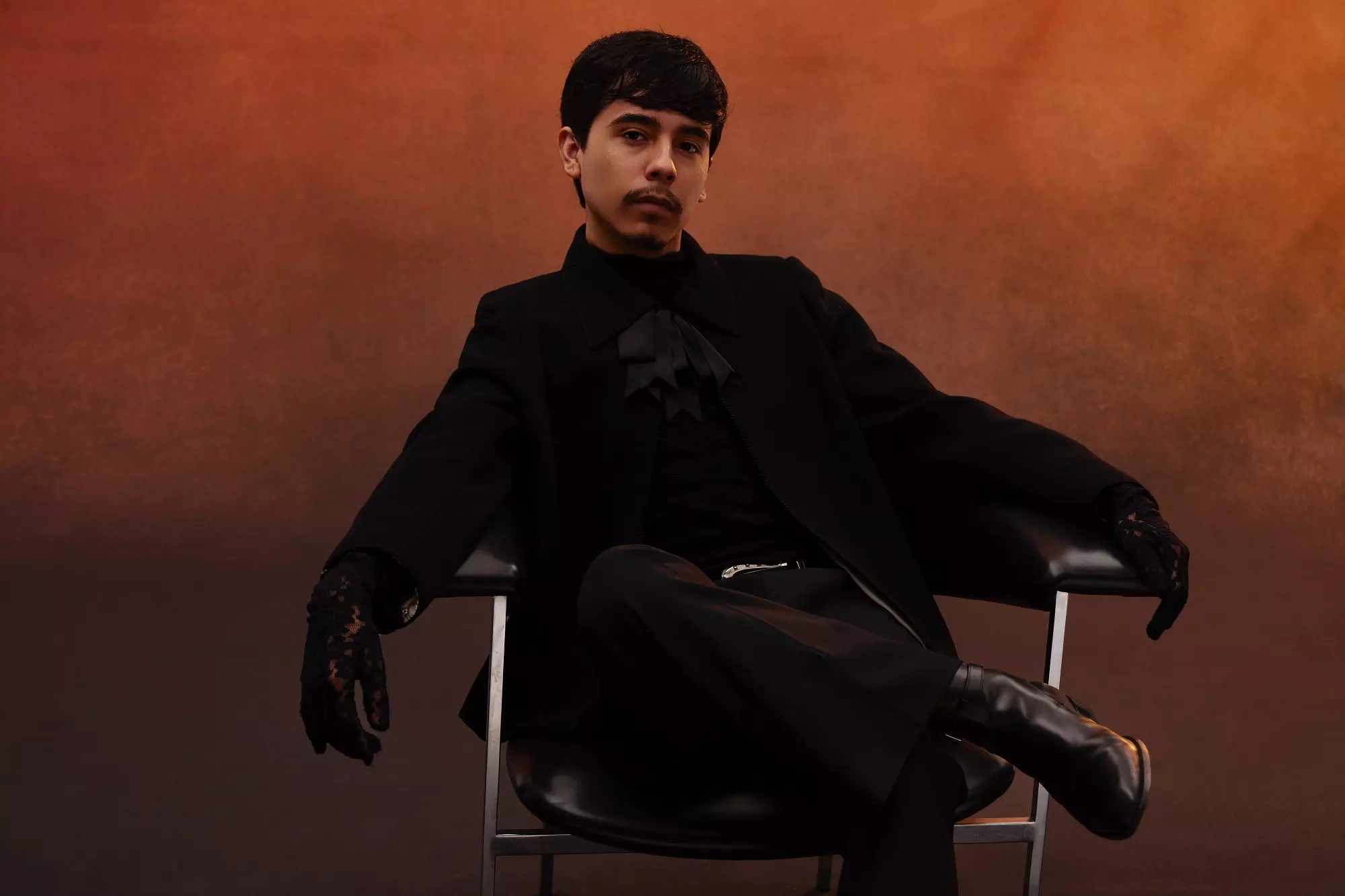
On 'Mirada,' Ivan Cornejo Redefines The Sound Of Sad Sierreño And Helps Fans Heal Through Music
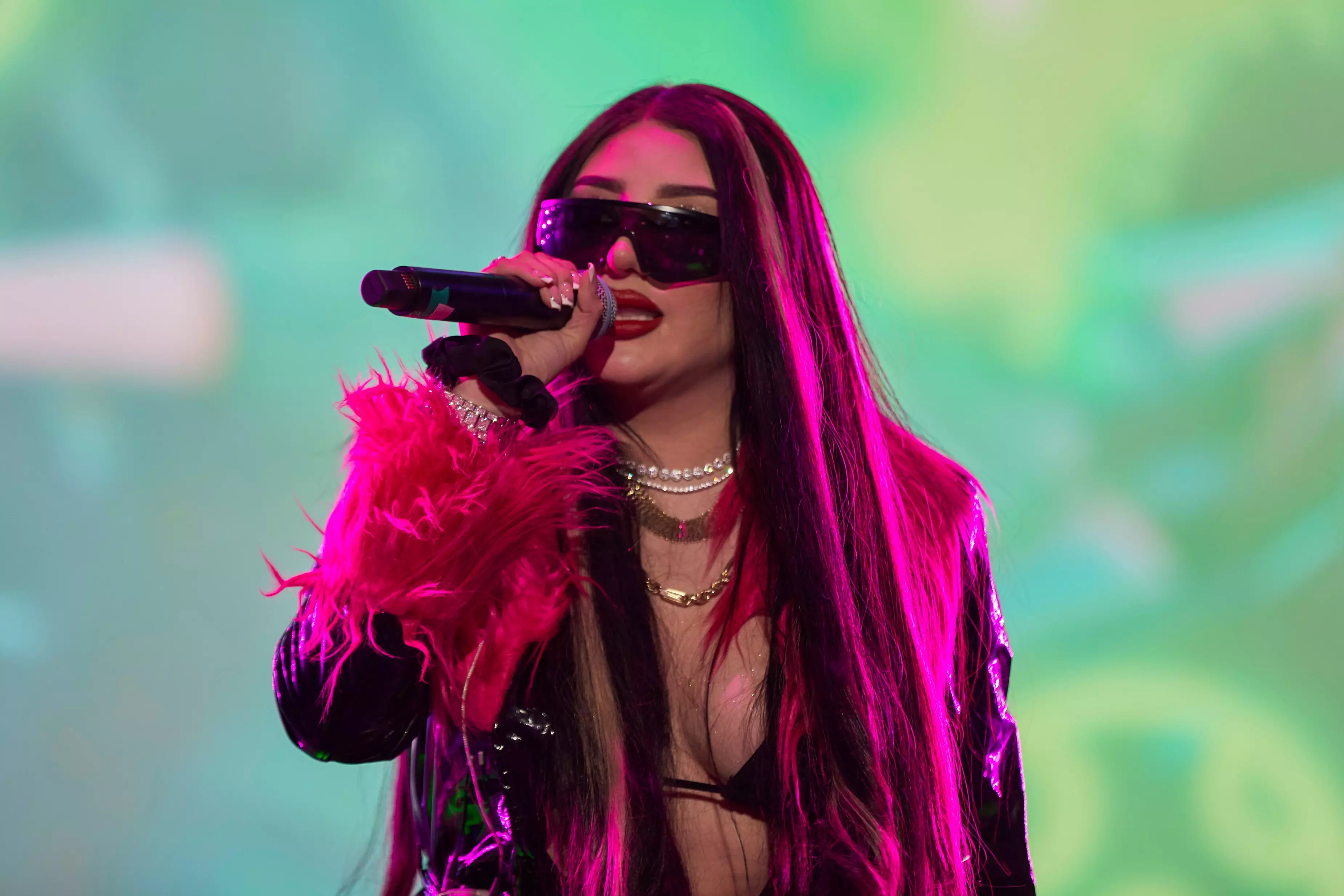
7 Artists Bringing Reggaeton Mexa To The World: El Malilla, Bellakath & More
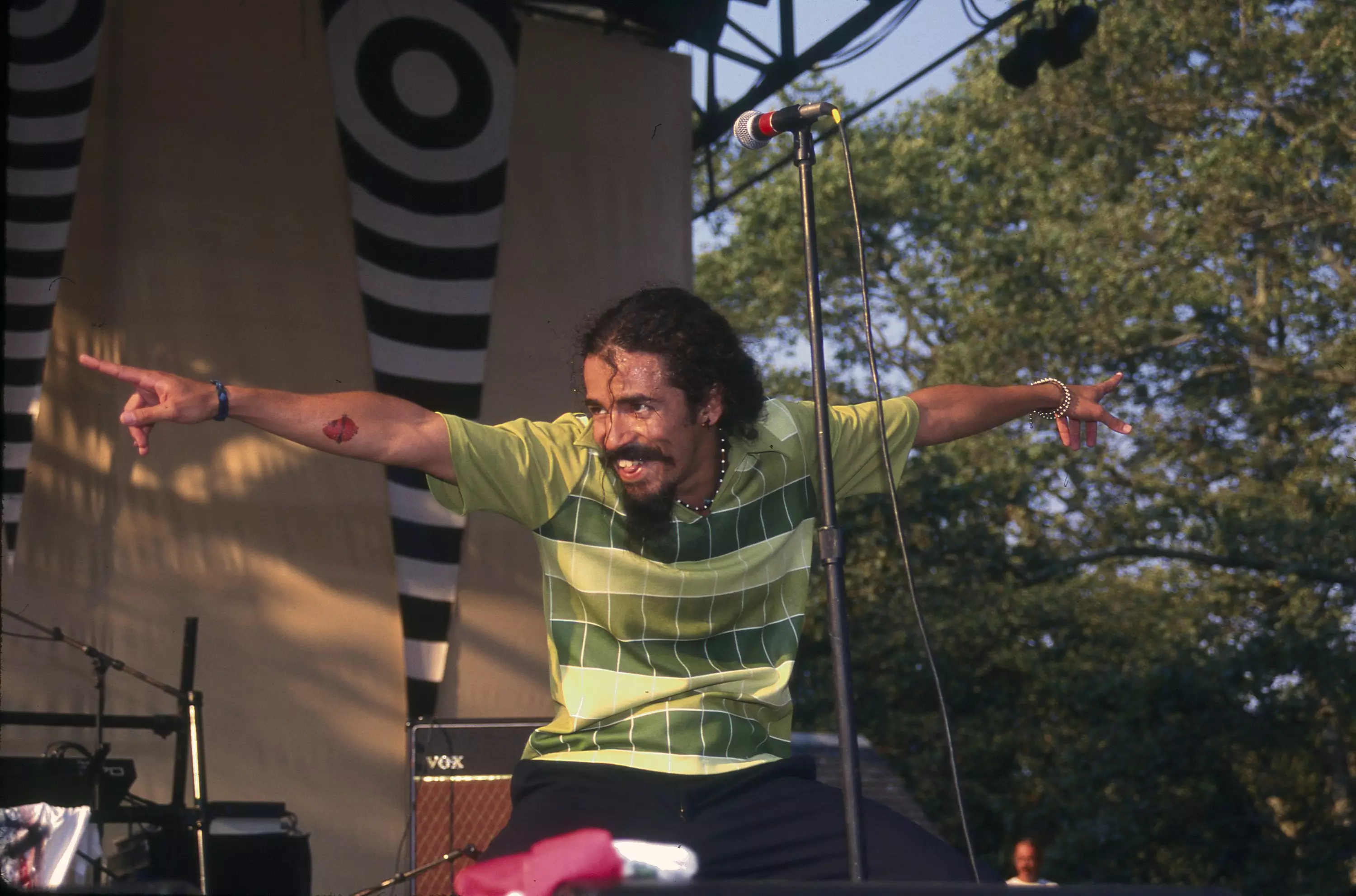
Revisiting 'Re': How Café Tacvba’s 1994 Masterpiece Changed Mexican Music Forever
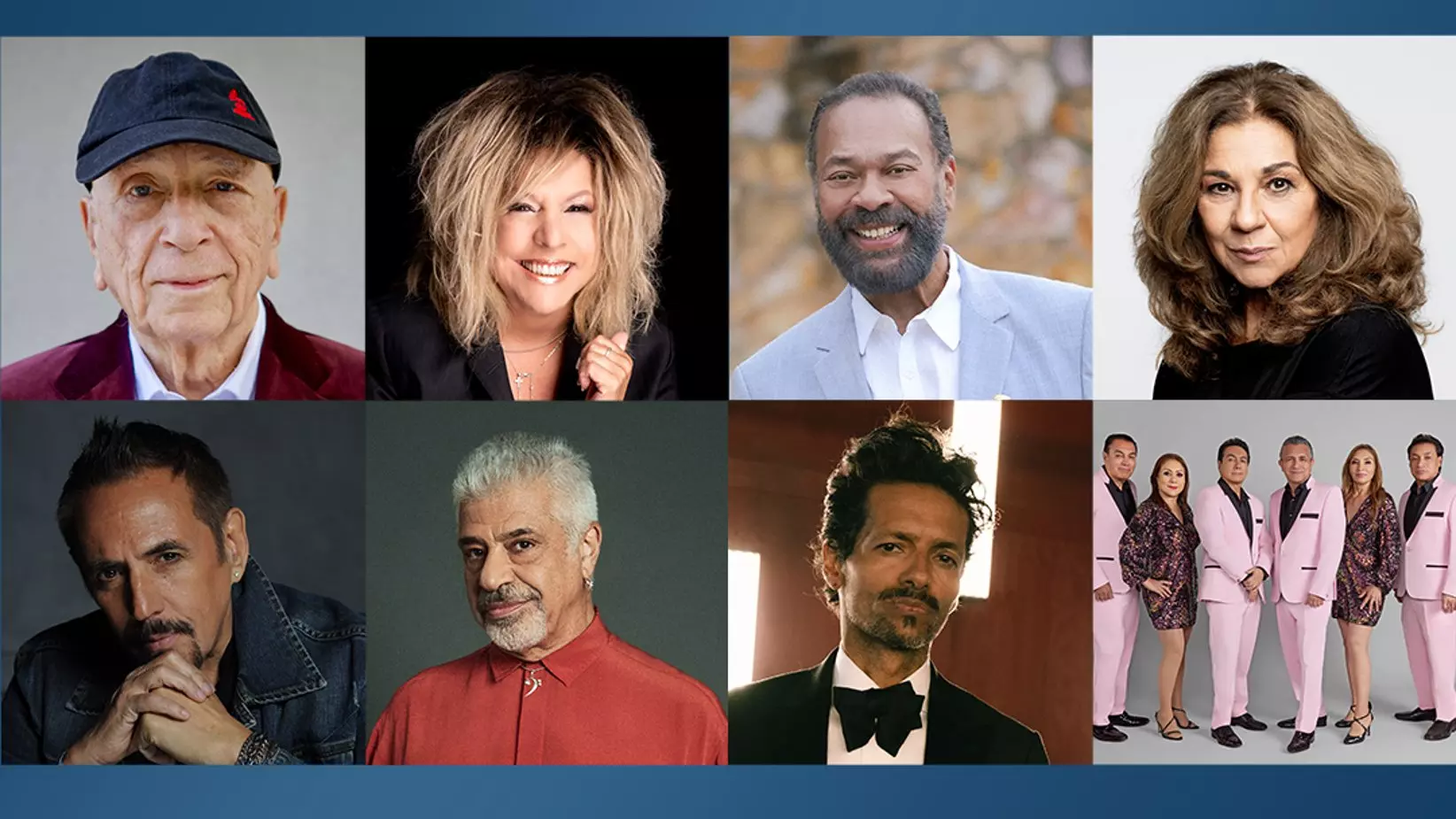
The Latin Recording Academy Announces 2024 Special Awards Recipients: Los Ángeles Azules, Draco Rosa, Albita, Lolita Flores & More

Nelly Furtado On How Remix Culture, ADHD & Gen Z Inspired Her New Album '7'
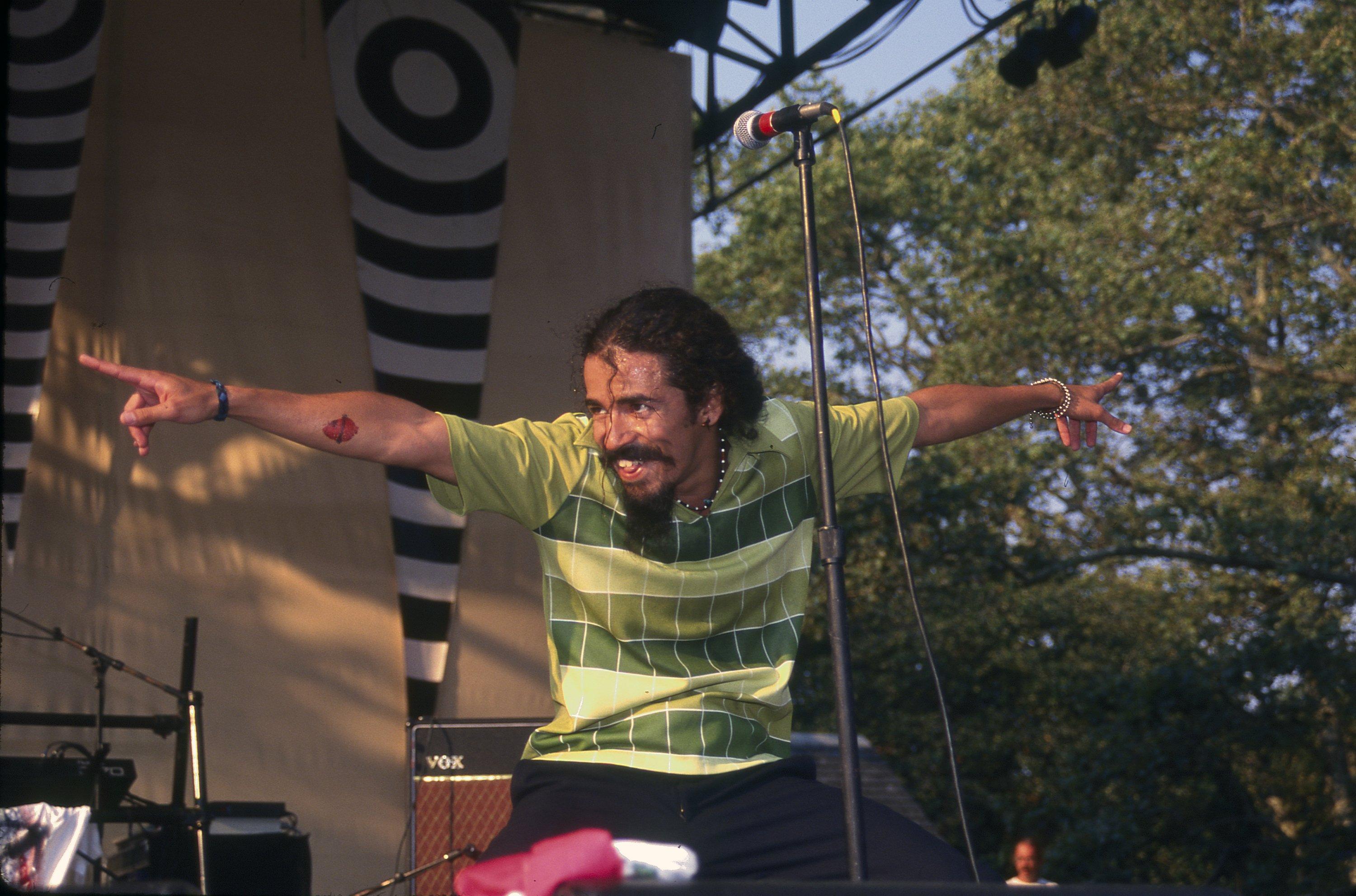
Photo: Bill Tompkins/Getty Images
feature
Revisiting 'Re': How Café Tacvba’s 1994 Masterpiece Changed Mexican Music Forever
Released on July 22, 'Re' saw the experimental rock en español group tackle themes of identity, death and national pride over a sprawling double album. On its 30th anniversary, consider Café Tacvba's landmark for Mexican rock opus.
Let’s not bury the lede here: Café Tacvba’s Re is one of the pantheon rock albums in the Spanish language. And arguably one of the greatest rock albums in any language.
Since its release 30 years ago on July 22, it’s been held up as one of the most ambitious and eclectic albums of its time, elevating the standard by which almost every rock en español band would be held to ever since — including its own creators. As a song cycle, Re is a whirlwind, with genre exercises and mini-suites scattered seemingly at random. Many pop critics liken its sonic diversity to the Beatles’ White Album, which is true if you’re just counting musical styles. But whereas the Fab Four were indulging their personalities within the group context, Café Tacvba conveyed solidarity in putting together an almost sui generis collection of madcap melodies.
As a whole, Re was a great leap forward for Latin American rock music, and a landmark for Mexican music in general.
It's important to consider the context of Café Tacvba in 1994. Despite its large population and long history as a Latin American cultural center, Mexico City lagged in establishing serious rock acts aside from outliers such as El Tri. Part of this is due to the politics of the age — including the Mexican government’s notorious crackdown on public rock concerts after several clashes between rock fans and police during the '70s — leaving the majority of Mexican rock bands resigned to playing in shady, underground clubs.
However, the 1980s saw the birth of BMG’s "Rock de tu Idioma" marketing blitz, and Mexican record companies finally began to put efforts into finding a national equivalent to South American-born stadium bands like Soda Stereo and Los Enanitos Verdes. On their second album, El Circo, Madilta Vecindad brought Mexico City to the forefront of the modern rock en español movement with their innovative mix of rock n’roll and ska crossed with pachuco subculture. Other bands that emerged around this time — from the gothic Caifanes (whom the band is currently touring with across the United States) to the arena rockers Maná — began building large audiences across the continent, but the scene still lacked a singular act that could elevate Mexican rock to the forefront.
Enter los Tacvbos. Aligning based on their shared passion for English new wave music, Café Tacvba was formed in the late '80s by college friends Rubén Albarrán and Joselo Rangel, who would serve as vocalist and guitarist, respectively. In time, they were joined by Joselo’s brother (and bassist) Quique and the multi-instrumentalist Emmanuel "Meme" de Real, choosing to name their band after a historic Mexico City café. Café Tacvba spent the late '80s evolving from a college garage band into one of Mexico’s most exciting live acts. After the release of their seminal 1992 self-titled debut — a frantic collection of ska-punk mayhem and colorful pop songs — expectations were high that the band could deliver a follow-up that would mirror their electric live show. What the band delivered would end up altering the entire scene completely.
Re is impactful and unique for many reasons, the first and most immediate being its adventurous studio production. Working again with rock en español superproducer Gustavo Santaolalla, Café Tacvba decided against continuing with the ska-punk foundations of El Circo and their own debut and embraced their own eclecticism. You can hear it from the jump with the huapango-via-jarana opening chords of "El Aparato," a sound previously unheard of on a pop record. Within its three-and-a-half minute runtime are layers of percussion and synthesizers complemented by glorious indigenous chants and one of Albarrán’s greatest vocals, rising and falling as the song demands. The movement in the final 45 seconds is ethereal, with its sheer sonic force sounding more apropos for the end of the world than the beginning of a double album.
Santaolalla revealed to Rolling Stone that he challenged the band, who responded with two batches of new songs for a sprawling double disc. Re is where a song like the sophisti-funk of "El Ciclón" is followed by two minutes of unadulterated thrash in "El Borrego." "24 Horas," meanwhile, mixes Beach Boys harmonies, Latin American lounge music, and post-punk beats. And that’s not even getting to the pure WTF of "El Puñal y El Corazón," with its multiple sections finding the middle ground between Pedro Infante and the Beatles, albeit with a merengue coda thrown in.
Perhaps the best testament to Santaolalla's production is "El Baile y El Salon," Re’s most popular song (and frequent concert encore for the band). It’s one of a string of great duets from Albarrán and Meme, perhaps the most earnest song in the band’s catalog with sweetly sincere lyrics. Santaolalla lets the music aid the storytelling: Meme’s vocals ride against stomping percussion and a grooving bass line, while Albarrán sings against a wave of synthesizers. In lesser hands, the song would be an easy paint-by-numbers arena rock anthem. Thankfully, Café Tacvba leaned into their own indulgences, and came out with something immortal.
Another important theme across Re is the band’s sense of discovery for their home country. Indeed, one of Café Tacvba’s intentions for Re was to showcase the sounds that they heard while touring through Mexico in support of their debut album. As Albarrán told the podcast "La Vida Circular," the band wanted to deepen their relationship with traditional Mexican music and infuse it with the punk, metal, and funk rock that they were already experimenting with.
The most striking example comes in the form of lead single "La Ingrata." With a bouncy rhythm and tweaked time signature inspired by norteño, the song is a common tale of desperation and heartbreak with a spiteful edge bled over from Café Tacvba’s punk roots. The fan favorite is also one of the band’s most influential songs, as it presaged a number bands combining norteño and alternative music — from Tijuana’s Nortec Collective at the turn of the century, to the contemporary corridos tumblados resurgence. Café Tacvba decided to stop performing the song in concert in 2017, due in part to the harsh lyrics about its female subject, and the escalating waves of violence against women within Mexico during this period. Albarrán noted around that time that "We were very young when it was composed and we were not as sensitive to this problem as we all are now."
Re did not sell well in Mexico upon release, though the band fermented interest during a sold out tour of Chile and Argentina. This, along with exposure from the recent launch of MTV in Mexico, was the major catalyst for the album’s fortunes taking an upturn. As the Mexican music listening public soon gathered, Re had something for everyone: From the smooth bolero of "Esa Noche," the frenetic banda of "El Fin de la Infancia," and the glittery Mexican pop of "Las Flores." Lyrically the band was speaking to its compadres, most notably on "El Metro," a bizarre short story of a lovelorn man trapped inside the Mexico City subway.
Despite its madcap sound and unabashed orgullo Mexicano, Re’s deepest theme is about the cyclical nature of life. There’s an obvious hint to it within the album art’s spiral conch shell, and more allusions in the song title "El Ciclón" and the reflexivity of "Pez" and "Verde," which bleed in-and-out of each other.
But dig deeper and the album is rife with references to life, death, rebirth, and natural law. "Ixtepec" sounds like a buoyant pop number but is really a cryptic tale about Death coming to collect his bounty, underlined with the refrain that "life is a cycle." Multiple songs, including "Trópico de Cáncer" and closer "El Balcón," reference reclamation of their birth land from the conquistadors, with the former song in particular telling a heartbreaking story of a civil engineer encountering the ecological damage to which he’s complicit. And there’s also the understated elegance of "El Tlatoani del Barrio," which recounts a love story in a pre-Columbian world soundtracked by Indigenous chants and a disco boogie.
Unlike many bands in a similar position, Café Tacvba never tried to replicate the magic of Re. Their next release was the covers album Alalancha de Éxitos, itself born out of their label’s reaction about Re’s lack of commercial hits (this bet paid off; the album was nominated for Best Latin Rock/Alternative Performance at the 40th GRAMMY Awards). Their visionary, hyper-experimental 1999 release Revés/Yo Soy, solidified their critical standing by winning a Latin GRAMMY for Best Rock Album and earning a GRAMMY nod. Today, it's a cult item currently unavailable on any streaming service due to label in-fighting.
After the turn of the century came Cuatro Caminos, a much more traditional sounding rock album, which led them to new critical and commercial heights, including their only GRAMMY win for Best Latin Rock/Alternative Album, and their career ever since has seen them find their groove as the thinking person’s favorite Mexican rock band. But within their exceptional catalog, Re remains a glorious outlier.
Even if Café Tacvba had never released another record after Re, their legacy would have remained secure. Re was among the major catalysts for the second wave of Mexican alterna-rock, which saw the likes of Julieta Venegas and Kinky elevating the genre with new sounds and perspectives. All modern rock owes a debt to the freewheeling spirit of Re, and the album’s continued influence and critical accolades are proof-positive of that.
In a sense, it’s almost poetic that Café Tacvba — a band formed through their shared idolization of David Bowie, the Clash, and the Cure — ended up proving to be as essential and venerable to rock history as any of their influences.
The Latest News About Latin Music

On 'Mirada,' Ivan Cornejo Redefines The Sound Of Sad Sierreño And Helps Fans Heal Through Music

7 Artists Bringing Reggaeton Mexa To The World: El Malilla, Bellakath & More

Revisiting 'Re': How Café Tacvba’s 1994 Masterpiece Changed Mexican Music Forever

The Latin Recording Academy Announces 2024 Special Awards Recipients: Los Ángeles Azules, Draco Rosa, Albita, Lolita Flores & More

Nelly Furtado On How Remix Culture, ADHD & Gen Z Inspired Her New Album '7'
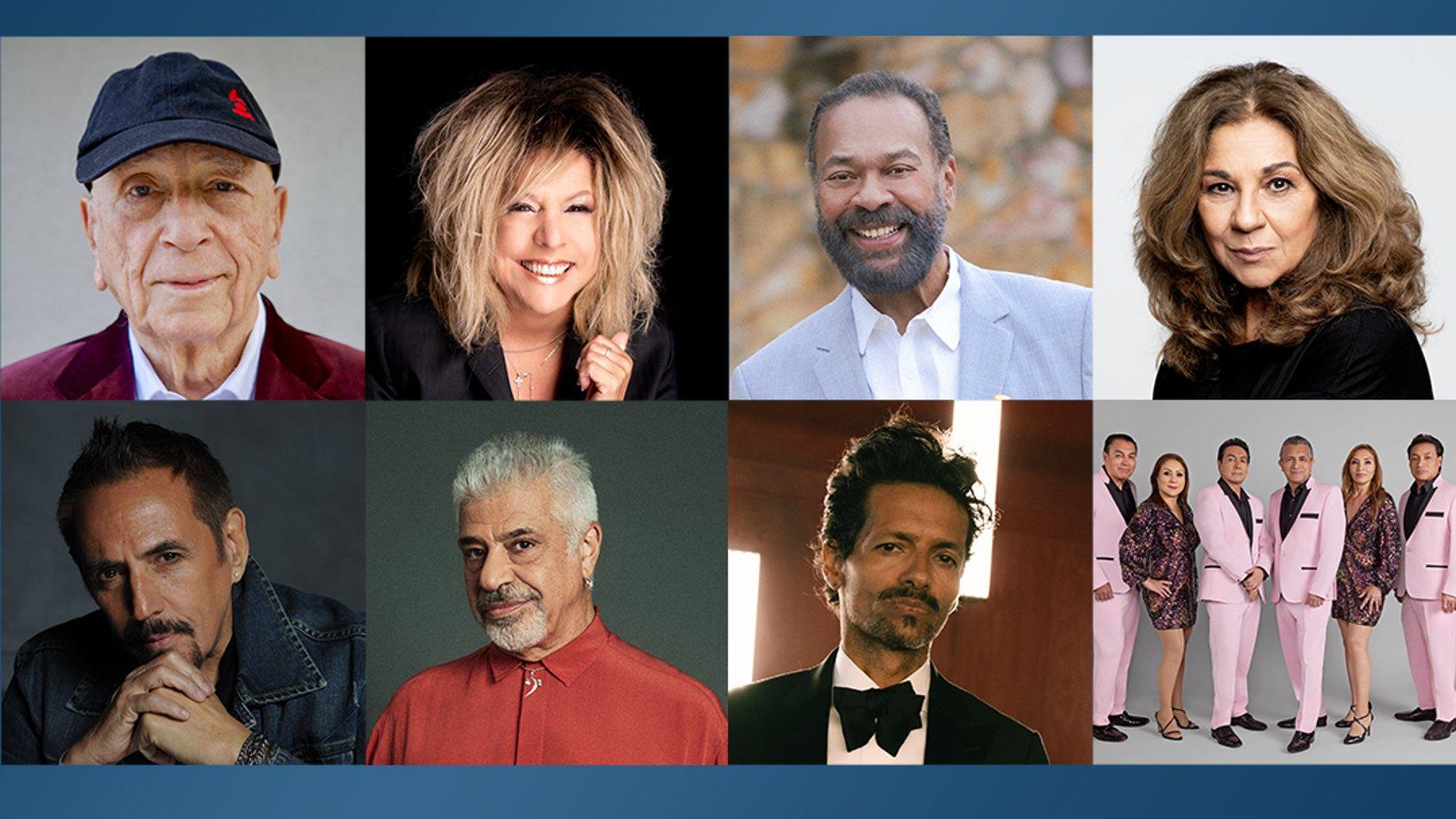
Photo credits: Fabian Rincon Cano; Innercatfilms; Angel Peña Ramos; Javier Naval; Felix Limon; Nathalia Mahecha; Lorena Dini; FotosdeEstudio_PHGabrielMachado
news
The Latin Recording Academy Announces 2024 Special Awards Recipients: Los Ángeles Azules, Draco Rosa, Albita, Lolita Flores & More
The Latin Recording Academy's 2024 Special Awards honorees also include Alejandro Lerner, Lulu Santos, Ángel ‘Cucco’ Peña and Chucho Rincón. The honorees will be celebrated during Latin GRAMMY Week ahead of the 2024 Latin GRAMMYs.
The Latin Recording Academy today announced its 2024 Special Awards recipients: Albita, Lolita Flores, Alejandro Lerner, Los Ángeles Azules, Draco Rosa, and Lulu Santos will receive this year's Latin Recording Academy Lifetime Achievement Award as part of its annual Special Awards Presentation. Additionally, Ángel ‘Cucco’ Peña and Chucho Rincón will receive the Latin Recording Academy's Trustees Award.
The Lifetime Achievement Award is presented to performers who have made creative contributions of outstanding artistic significance to Latin music and its communities. The Trustees Award is bestowed on individuals who have made significant contributions to Latin music during their careers in ways other than performance. Both distinctions are voted on by the Latin Recording Academy's Board of Trustees.
“It is with great pride that we honor these musical legends — who continue redefining our Latin music and heritage — and we look forward to celebrating them as part of our Latin GRAMMY 25th anniversary festivities in November,” Latin Recording Academy CEO Manuel Abud said in a statement.
The honorees will be celebrated during a private event as part of Latin GRAMMY Week on Sunday, Nov. 10, in Miami, ahead of the 2024 Latin GRAMMYs. Alex Hadad will serve as executive producer of the Special Awards Presentation, working under the direction of the Latin Recording Academy’s production team led by Ayleen Figueras.
The 2024 Latin GRAMMYs, officially known as the 25th Latin GRAMMY Awards, will take place Thursday, Nov. 14, in Miami at Kaseya Center. The three-hour telecast will air live on Univision, Galavisión, and ViX on Thursday, Nov. 14, beginning at 8 p.m. ET/PT (7 p.m. CT), preceded by a one-hour pre-show starting at 7 p.m. ET/PT. Nominations for the 2024 Latin GRAMMYs will be announced Tuesday, Sept. 17.
The 2024 Latin GRAMMYs mark the 25th anniversary of the Latin GRAMMY Awards. This year, the Latin GRAMMYs will debut a new Field and two new Categories: Best Latin Electronic Music Performance, housed within the new Electronic Music Field, and Best Contemporary Mexican Music Album (Regional-Mexican Field).
Ahead of the 2024 Latin GRAMMYs, the Latin Recording Academy will host the official Latin GRAMMY Week 2024, which includes multiple events throughout Miami-Dade County, including marquee events like Leading Ladies of Entertainment, the Best New Artist Showcase, Special Awards Presentation, Nominee Reception, Person of the Year, and the Premiere Ceremony preceding the telecast. This year, 18-time Latin GRAMMY winner and two-time GRAMMY winner Carlos Vives will be honored as the 2024 Latin Recording Academy Person of the Year. More details on the official Latin GRAMMY Week 2024 events and calendar will be announced in the coming months.
Learn more about the Latin Recording Academy’s 2024 Special Awards recipients below:
2024 Lifetime Achievement Award Honorees
Albita (Cuba)
One of the most exuberant ambassadors of Latin culture in the United States, Latin GRAMMY-winner Albita has championed the rollicking beauty of Cuban music since the release of her debut album in 1988. The daughter of a popular folk duo, Albita Rodríguez was born in Havana in 1962. Noted for the fiery combustion of her vocal cords and a precise understanding of Cuban musical tradition, Albita reignited her career after she left Cuba and moved to Miami in 1993. Her breathtaking live performances at Florida nightclubs resulted in a recording contract with Emilio Estefan’s Crescent Moon label.
Released in 1995, her U.S. debut, No Se Parece A Nada, included one of her biggest hits: the brassy tropical anthem “Qué Manera de Quererte,” as well as a velvety bolero — a genre in which she also excels. A prolific songwriter, Albita built up a prodigious discography of original material, fusing the essence of son cubano with traditional trova and balada. The hostess of a highly successful television show, “La Descarga Con Albita,” she also showcased her formidable acting chops in productions of the Broadway musicals “The Mambo Kings,” “Carmen La Cubana,” and “Havana.” Albita continues actively recording new music and performing in front of enthusiastic audiences all over the world.
Lolita Flores (Spain)
María Dolores González Flores was born in Madrid in 1958 and was only 17 when she released a hugely successful debut album, Amor, Amor. In 1976, her second album featured the smash “No Renunciaré,” an impossibly nostalgic balada marked by an ornate arrangement and her gritty performance. During the 1980s, Lolita became a beloved pop star throughout the Americas, and in the 1990s, she developed a parallel career as an award-winning actress and television presenter. The daughter of singers Lola Flores and Antonio González ‘El Pescaílla’ and sister of Rosario and the late Antonio Flores, Lolita found a distinctive personal approach anchored on the gorgeous texture of her vocals and an eclectic repertoire that never ceases to surprise. In 2001, the album Lola, Lolita, Lola triumphed with an irresistible cover of the Cuban standard “Sarandonga,” which her father had recorded in 1966. In later decades, Lolita expanded her palette with sophisticated albums such as 2007’s Sigue Caminando, which veered into bossa nova, jazz, and pop-rock.
Alejandro Lerner (Argentina)
A thoughtful singer/songwriter anchored on his impeccable keyboard technique, Alejandro Lerner is the most covered Latin artist of his generation. Born in Buenos Aires in 1957, Alejandro Federico Lerner began his career as a teenager, playing with various legends of 1970s Argentine rock. Released in 1982, his solo debut, Alejandro Lerner Y La Magia, showcased the qualities that would soon garner him millions of fans: solid musicianship, the raw honesty of his lyrics, and a natural gift for evoking delicate, nocturnal moods. Inspired by Argentina’s return to democracy, 1983’s “Todo A Pulmón” was recorded by Spanish star Miguel Ríos and became an international hit. The mutual admiration that he shared with Mexican balada icon Armando Manzanero resulted in several successful tours together. Alternating between his native Argentina and Los Angeles, Lerner collaborated with Carlos Santana on the 2002 album Shaman and toured with the guitarist. He has also worked with Carole King, Luis Miguel (on the 1996 mega-hit “Dame”), Celine Dion, Air Supply, Gino Vannelli, Paul Anka, Alan Parsons, and Barry Gibb, among many other luminaries. In 2005, he was enlisted by Disney to perform the songs in the Spanish version of Chicken Little and to compose an original song for the closing credits of the animated film. A tireless performer, Lerner is still active in the recording studio and tours sold-out venues across the Americas.
Los Ángeles Azules (Mexico)
Founded in the Mexico City municipality of Iztapalapa in 1976 by the siblings of the Mejía Avante family, the group released their debut album in 1982. But it was in 1996 that the orchestra became a fundamental part of Mexican cumbia with “Cómo Te Voy A Olvidar.” Noted for their openness to collaborate with artists from other genres, Los Ángeles Azules revolutionized their sound — and the Latin music business — in 2013 by teaming up with legends from the Latin alternative field: Caifanes’ Saúl Hernández, Fabulosos Cadillacs’ Vicentico, and Ximena Sariñana, to name a few. Subsequent duets with Natalia Lafourcade (the retro charm of “Nunca Es Suficiente” in 2018), Argentinian artists (the brilliant fusion of De Buenos Aires Para El Mundo in 2020), and Carlos Santana (2023’s funky single “A Todos Los Rumberos,” with Panteón Rococó) solidified the band’s reign as one of the most beloved acts in all of Latin music.
Draco Rosa (Puerto Rico)
The remarkable musical career of Draco Rosa encompasses many facets — from boy band superstar to iconic rock en español pioneer and global hitmaker — all of them informed by his virtuoso vision and protean talent. Born in Long Island, New York, in 1969 to Puerto Rican parents, the Latin GRAMMY-winning singer, songwriter, and multi-instrumentalist Robert Edward Rosa Suárez got his first taste of fame as a member of Menudo. After a brief stint with rock band Maggie’s Dream, Rosa released two fundamental albums that shaped the 1990s wave of Latin American rock: 1994’s Frío and 1996’s Vagabundo. Delving into the pop machinery with the desire to subvert any and all expectations, Rosa co-wrote “Livin’ la Vida Loca” and other pop smashes for former Menudo bandmate Ricky Martin and also produced songs for Julio Iglesias. Always invested in exploring new ground, he developed a solo career that switches effortlessly from epic alternative rock (2018’s Monte Sagrado) to soulful ambient sonics (2021’s Sound Healing 1:11). This year marked the release of Reflejos de Lo Eterno, a transcendent covers collection of Latin alternative classics.
Watch: Draco Rosa Talks On Tour Backstage Must-Haves | Herbal Tea & White Sofas
Lulu Santos (Brazil)
A prodigiously talented guitarist, singer, and composer able to infuse an ethereal sense of romance into every song he touches, Lulu Santos has spent the past five decades carving a distinguished path in Brazilian music. Born in Rio de Janeiro in 1953, Luiz Maurício Pragana dos Santos abandoned his studies in favor of the hippie movement and a music career. After founding the ambitious progressive rock outfit Vímana, Santos launched a solo career in 1982 with the album Tempos Modernos. The jangly self-titled track and the lush “De Repente Califórnia” epitomized the MPB aesthetic of the time: sunny pop-rock chords, oblique melodies, and echoes of new wave. His third LP, 1984’s Tudo Azul, established him as one of the key Brazilian rockers of the decade. Still, Santos’ tireless quest for novel forms of expression found him incorporating dance, funk, and R&B into his 1990s output. A passionate champion of fellow musicians, Santos released poignant albums revisiting the songbooks of fellow legends Roberto and Erasmo Carlos (2013) and Rita Lee (2017). He remains active in music, having recently released a new EP of remixes — Atemporal — in May 2024.
2024 Trustees Award Honorees
Ángel ‘Cucco’ Peña (Puerto Rico)
Marc Anthony. Celia Cruz. Willie Colón. Gilberto Santa Rosa. These are just a few of the many stars whose work was enhanced by the talent of composer, producer, and orchestrator Ángel ‘Cucco’ Peña, a living legend of Puerto Rican music. Born in Santurce in 1948, Peña attended Puerto Rico’s Conservatory of Music and later sharpened his skills as a performer with tropical ensemble Orquesta Panamericana. His ability to infuse his Puerto Rican roots into every recording he touched cemented his sterling reputation as a sympathetic collaborator of other artists. In 1993, he co-produced Willie Colón’s classic LP Hecho en Puerto Rico, including the salsa anthem “Idilio.” The late 1990s were a time of fiery creativity for Peña. He produced Marc Anthony’s third album, Contra la Corriente, took over the musical direction on Gilberto Santa Rosa’s live album En Vivo Desde El Carnegie Hall, and contributed to albums by Ricky Martin (the pop blockbuster Vuelve), Chayanne and Celia Cruz. The Latin GRAMMY winner has worked extensively in film, advertising and television specials and remains an active ambassador of Latin music.
Chucho Rincón (Mexico)
A prolific composer, producer and label executive, Latin GRAMMY winner Chucho Rincón is a pioneer of the Mexican recording industry and a guiding light within Latin music. Born in Ciudad Juárez, Chihuahua, in 1937, Jesús ‘Chucho’ Rincón Cárdenas grew up in Michoacán and learned to play the guitar at a young age. After moving to Mexico City and taking acting and voice lessons, he became the lead vocalist for the soulful Trío Los Aguilillas in 1956. Rincón left the band in favor of a solo career and began writing songs in 1962. His charismatic presence and musical expertise facilitated a transition into a musical director with several labels. Working for Capitol, he signed many artists, including a young Joan Sebastian, whose career he would continue to shepherd decades later. In 1988, Rincón moved with his family to Spain where he became the musical director of the Orfeón label. He has produced over 300 albums by stars such as Alejandro Fernández, Chavela Vargas, and La Sonora Santanera and composed more than 200 songs, including the mega-hit “Quén Pompó.” Rincón continues producing music as part of a creative team with his son Fabián.
The Latest News About Latin Music

On 'Mirada,' Ivan Cornejo Redefines The Sound Of Sad Sierreño And Helps Fans Heal Through Music

7 Artists Bringing Reggaeton Mexa To The World: El Malilla, Bellakath & More

Revisiting 'Re': How Café Tacvba’s 1994 Masterpiece Changed Mexican Music Forever

The Latin Recording Academy Announces 2024 Special Awards Recipients: Los Ángeles Azules, Draco Rosa, Albita, Lolita Flores & More

Nelly Furtado On How Remix Culture, ADHD & Gen Z Inspired Her New Album '7'

Photo: Sammy Rawal
interview
Nelly Furtado On How Remix Culture, ADHD & Gen Z Inspired Her New Album '7'
On the heels of announcing her seventh studio set, Nelly Furtado details her emotional return to the studio, and why she's having "more fun than ever" making music.
If you're a millennial, odds are you have fond memories of Nelly Furtado's music. Her early hits are 2000s playlist staples, including her GRAMMY-winning debut single, "I'm Like A Bird," and Timbaland-produced classics "Say It Right," "Maneater" and "Promiscuous."
Yet the Portuguese-Canadian pop auteur is far from a relic of Y2K nostalgia. In the seven years since her last album, 2017's The Ride, Furtado has seen her back catalog resurface in many ways, from remixes in DJ sets to viral TikToks. Not only did the millennial appetite for her music remain, but Gen Z was discovering — and loving — it. And the singer/songwriter took notice.
"I really feel like I was called back to the industry by the industry, especially DJs. I would go out and hear my songs played before arena shows of other artists, and at house parties and clubs," Furtado tells GRAMMY.com. "There was a sense of joy and celebration in it…I thought, This can only be remixed so many times, I better go make some new stuff."
Enter 7, Furtado's aptly titled seventh studio album. Due Sept. 20, 7 is the product of four years of fully immersing herself in the catharsis and connection of the studio. The Canadian songstress is confident and vulnerable across its 14 tracks, showcasing the malleability of her rich voice with a wide range of sounds that result in a fun, largely upbeat collection of songs.
The album's energy is indicative of the freedom and openness Furtado not only felt in the studio — where she crafted over 400 songs during the process — but also in today's musical climate. Furtado has been tapping into the collaborative spirit of the industry, teaming up with friends new and old for her latest material. Producer Dom Dolla helped birth Furtado's first new music since 2017 with the dance floor heater "Eat Your Man," a coy nod to her own "Maneater" that arrived last June; their partnership has also included appearances at Australia's Beyond The Valley festival in 2022, Lollapalooza and Portola Fest in 2023, and Coachella 2024. Along the way, the singer has also linked with past collaborators Timbaland and Justin Timberlake ("Keep Going Up") and Juanes ("Gala y Dalí").
Even 7's first two singles are collaborations: the sultry electronic-fused bop "Love Bites" with dance pop experts Tove Lo and SG Lewis, and the confident anthem "Corazón" with Colombian electro-pop wizards Bomba Estéreo. Along with offering a taste of the joy and sonic breadth of 7, both songs prove that Nelly Furtado isn't just back — she's having more fun than ever.
Read on to hear from the "Maneater" herself about her new album, finding sisterhood with Bomba Estéreo's Li Samuet, leaning into ADHD as a creative superpower, and why she'll never tire of singing "I'm Like A Bird."
You feel really free on your upcoming album, 7. I was curious what sounds and styles you're feeling most excited to explore and lean into now and which ones made it on the album?
That's a good question. When I was touring over the years, you always soundcheck at each venue, which might be this big, beautiful space, like a theater. I love the way the music would come back at me through the big speakers and monitors of a large live space, and it's something I never quite felt in the recording studio.
When I started recording this album four years ago, I started getting a bunch of friends in a room, setting up wedges and monitors and speakers with a bunch of microphones on amps and instruments, recording absolutely everything we're saying and doing. I started recording in Toronto and would invite my friends, and all of a sudden, I found myself spending Friday nights there. It became this very social event with lots of collaborations. I loved the way my voice sounded back at me through the speakers in real time, much like those soundchecks I remembered so fondly.
Halfway through the recording process, I started meeting producers like Dom Dolla. We had reached out to each other because we were going to perform at the same festival, Beyond The Valley in Australia, where I also met SG Lewis. I was blessed to meet these really key collaborators for me who are making great current music I had special connections with. I just felt blessed to be so open.
I grew up learning a spontaneous style of improvisational singing called Desafio from Portugal, where people freestyle on stage together. [We channeled] the spirit of spontaneous freestyling in the studio. I have songs on this album that are freestyles. There's this beat that FnZ did, and I just opened my mouth and sang something, and that's the song. I went back and changed maybe three words and re-sang the vocal. You just kind of open the portal and sing. [Laughs.] For me, this album's really about community and, always, fusion.
Can you speak to how your daughter, as well as seeing Gen Z discovering your music on TikTok, and DJs remixing your songs encouraged and inspired you to go back to the studio?
Oh, that was cool. Dom had been communicating about [his Beyond the Valley] performance because he did a special mashup of "Give it To Me" and [his song] "Take It" that we premiered there. To top that off, he wanted to do the Bicep "Glue"/"Say It Right" [mashup]. He created this whole archway for me to come out and do this dramatic, beautifully received rendition of the song. That was a magical moment I'll never forget.
Four or five years ago, my daughter came home from high school and was like, "Mom, you're trending on TikTok." I didn't know what that meant. I'm not gonna lie; it wasn't until I walked out at Beyond the Valley and saw these Gen Z kids singing all the lyrics to my songs that I really understood the power of social media and TikTok. It was real; new people had discovered me.
I just went to Stockholm and these kids were so young, singing every word of my old songs, and it blew my mind. I don't even know if they were born when the first records came out. [Laughs.]
I mean, people dressed up like Dom Dolla and I at Lollapalooza for Halloween with my same snake shirt. It was so meta and so cool. I love remix culture and nostalgia culture, and I lean into it. It's just like making a scrapbook.
Did that motivate you to want to make new music?
Oh yeah, are you kidding me?! I really feel like I was called back to the industry by the industry, especially DJs. I would go out and hear my songs played before arena shows of other artists and at house parties and clubs. I heard it in a lot of different contexts, and something clicked for me where I just wanted to have fun and party with my music. There was a sense of joy and celebration in it. People kept remixing all kinds of songs of mine from all my different albums. I thought, This can only be remixed so many times, I better go make some new stuff.
I love meeting artists online and making those connections in real time. I love the current climate of music. I think it is more fun than ever for artists, because we get to be very in the moment and we get to create moments. We get to focus on what we want to, we get to activate different things in our own way and on our own timeline. I connect with so many DJs online.
That's so my vibe; I've always been about collaboration. I feel like the industry is tailor made for artists like me right now who just want to collaborate and vibe out and make friends and have fun. I've always been in it for the music, so it's just so fun to be doing this.
7's second single, "Corazón" featuring Bomba Estéreo, is very confident and celebratory. What was it like working with them and how did that song come together?
"Corazón" started with this very special beat that T-Minus had made for me. He was such a champion of me doing this new project, and really pushed me to make sure I was putting my best foot forward with these new songs. The beat for "Corazón" was already magical, but I needed to find its stamp. [Working on the album] was like mining. You're digging until you see a glimmer, and then you chase it until you [hit] gold.
I co-produced the song and invited Bomba Estéreo to be on it. I brought them to the studio after a concert they had in Toronto. I got off a plane from recording in L.A., went straight to their gig, and embraced Li on stage. I hadn't seen her since I flew to her home on the beach in Santa Marta [Colombia] at the begging of my friend Lido Pimienta, who thought I needed to go meet Li. I'd never met her before [then]. I stayed at her home and met her family. She's an incredible woman. She's really a goddess.
We're at the studio [in Toronto], just eating chicken wings and having some tequila, and magic kind of happens. They're playing all these beautiful parts on their instruments. There, you get the fusion. It becomes something a little bit more than the song was before, and Li has her rap feature on there.
How did bringing Bomba Estéreo into the studio make the "Corazon" into something different?
I just knew it would make it more special. What's really weird is Li and I have another song that's not on this album— that will probably be on the deluxe — called "Corazónes" that we wrote in Colombia. I don't think it's a coincidence that this song is called "Corazón." I think it's some weird subconscious tick. [Laughs.] It was almost like the collaboration was meant to be more than one song.
Colombia made such a huge impression on me. I also spent time in Barranquilla because Lido was filming artwork for a project of hers; we were right in the thick of it in downtown Barranquilla. Li and I wrote a song at her treehouse jungle studio called Papaya Studios in Santa Marta. I really needed that sisterhood at that time. That trip was almost like a woman's retreat.
I just knew Bomba Estéreo needed to be on the song. I wanted [Li] to rap. On "Soy Yo" she's rapping and doing her thing. She's a really amazing rapper. She's an amazing singer and writer too; she's pretty rare. She's in her own lane.
I really connect with how Bomba Estéreo's music has a love vibration that I think is very rare. That's what sets them apart. That's why I knew they had to be a part of this song called "Corazón." They embody that idea.
Can you speak a bit more to the creative process of working on this album, as well as the emotions you were processing through it?
On this album there are some cool moments where I just let the music happen. Something clicked in me the last couple years where I realized it's really quite simple: You just have to enjoy what you're singing.
I was in the studio with Dom Dolla, producer Jim Beanz [who worked on Loose] and singer/songwriter Anjulie [Persaud] in Philly last Valentine's Day. We recorded and wrote "Eat Your Man," a track I put out with Dom last summer. Very early on when we were working on demos, Dom was like, "Why are you pronouncing every word when you sing?"
There's something to letting yourself relax into the music and just letting it be. I kind of forgot that. In the studio with Dom that day in Philly, it was a real aha moment for me. It was like, Oh man, I remember what this is like, just singing for the joy of it all.
Emotionally, I got into the studio four years ago with a bit of a broken heart. I'd been through a lot in my personal life and I was quite sad. The first day I opened my mouth, I almost felt like I was having a heart attack from the amount of emotion moving through my chest. I had been a stay-at-home mom for about three years straight — my two youngest children were born a year apart — and I didn't go to the studio at all. So that first time back was quite impactful for me.
That pain quickly turned into joy because I started spending Friday nights at the studio with my friends and collaborators. We would often jam until 7 in the morning. The studio is my happy place. I really learn so much about myself every time I make an album. It's uncanny; I have this moment before I put the album out where I'm almost sad because I have to detach from the process.
I've become overcome with emotion a lot of times making this album, hearing the mixes back and completing songs. I did purge a lot of emotions, but it's amazing how happy the album is.
I think that comes from the sense of community and really leaning on people I've met along the way. I met moms who make music during this process, like Li and Lido. I'd be coming home from the studio texting them, and they'd be coming off the stage in Holland or Paris and I'd feel so motivated. Community is such a huge part of this album. I loved welcoming that into the mix. It was really fun to make.
How did you take all of that — four years, so many emotions, over 400 songs — and narrow it down into an album? I can't even imagine.
I was diagnosed with ADHD about two years ago, and it was really an aha moment. I've had it my whole life. People always say, "Hey, Nelly, you're so spaced out. Where'd you go?" I got used to people making fun of me for spacing out and used to the procrastination. I [also] got used to the self-judgment and beating myself up about it.
So, getting diagnosed kind of changed my life. It is a superpower in the studio. I can write five songs at once. I can invite so many people. We can have two rooms, sometimes three, going at once and we can keep making stuff all night. So I leaned into the ADHD, embraced it, claimed it — and there we have it, so many songs.
Luckily, I have great people around me, like my engineer, Anthony [Yordanov], really kept me in check. He became that North Star of, "Okay, these are the songs we have. What are we working on today?" Also, my daughter Nevis [Gahunia] is one of the A&Rs on the album. She works in the music business and is very organized.
I leaned on other people to help me hone it in. I don't know how a bunch of stuff magically becomes 14 songs. It kind of happened by bringing a lot of friends in the studio for these long, fun parties just listening to stuff and everybody being like, "We like this song."
I have a lot of my favorite people on the album. And there's a lot more to come. I really feel like the deluxe [version] is going to be jammed with a bunch more stuff.
It's your seventh album and it's been seven years since your last, but is there any further meaning in naming it 7?
To be totally honest, the songs are all so different. It was the only title that made sense because it's more like a collection. Fashion collections don't really have titles, they're just called collection number 10 or 21. This is my collection seven.
And yeah, it's been seven years since my last album, and it's my seventh album. I love the simplicity [of the title]. Honestly, sometimes I feel a bit like a music librarian trapped in a pop star body. So it's really appropriate for me to put together this random collection of songs and just call it a number, like a librarian. [Laughs.] Go to the seventh section.
I want to go back to the very beginning, to "I'm Like a Bird," your GRAMMY-winning debut single. How does it feel now when you perform that song you wrote when you were 20?
I wrote it in a little room by myself before [going to] the studio. When I sing it, I love it. It's wild, I love it more every time I sing it. It feels incredible singing that song.
There are certain songs in my set that almost feel like one big fun karaoke session with the crowd. Who doesn't love that? It's fun every single time.
More Sounds From Latin America & Beyond

On 'Mirada,' Ivan Cornejo Redefines The Sound Of Sad Sierreño And Helps Fans Heal Through Music

7 Artists Bringing Reggaeton Mexa To The World: El Malilla, Bellakath & More

Revisiting 'Re': How Café Tacvba’s 1994 Masterpiece Changed Mexican Music Forever

The Latin Recording Academy Announces 2024 Special Awards Recipients: Los Ángeles Azules, Draco Rosa, Albita, Lolita Flores & More

Nelly Furtado On How Remix Culture, ADHD & Gen Z Inspired Her New Album '7'
